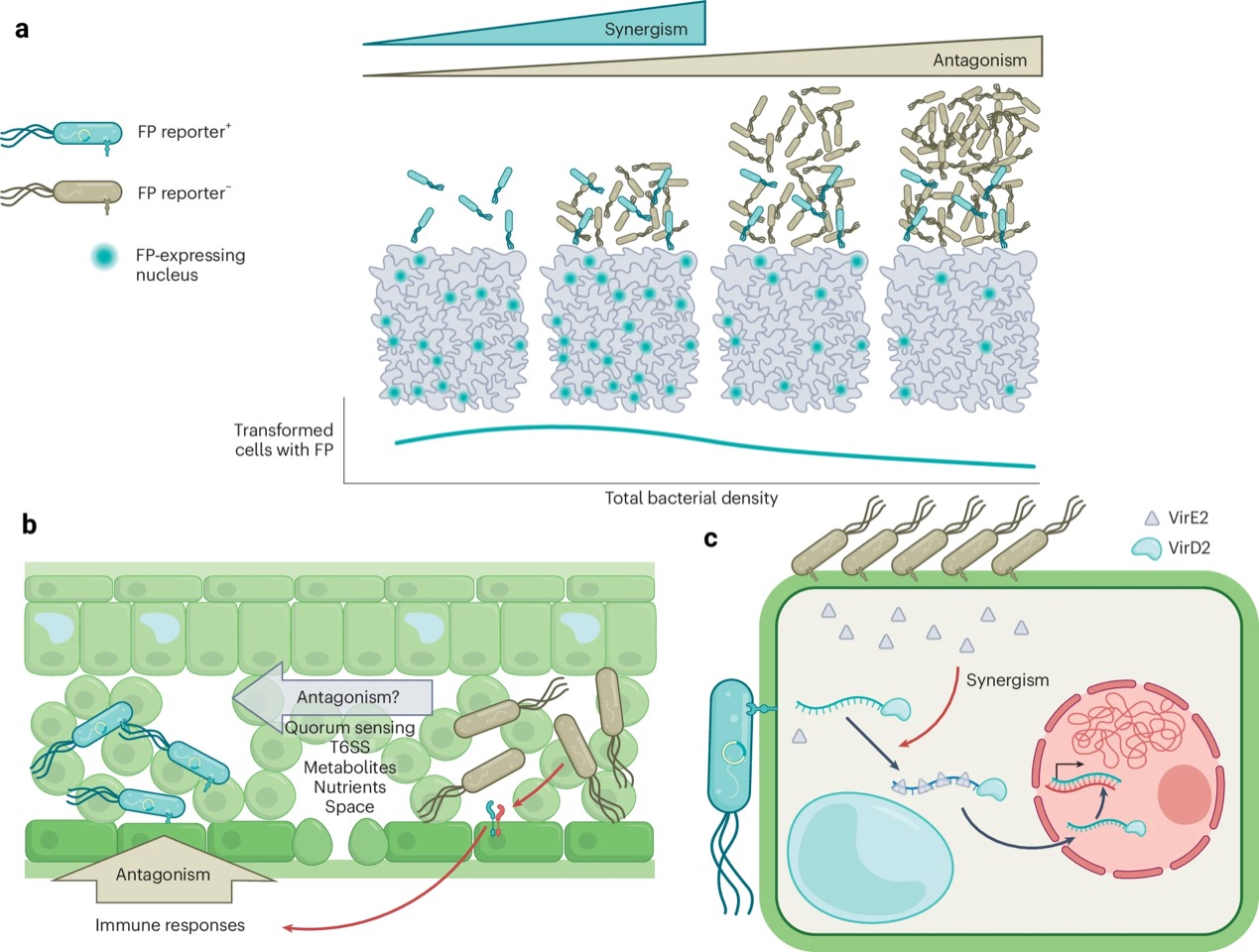[Erh-Min Lai] [News & Views] on Cooperation and antagonism in Agrobacterium-mediated transformation
POST:Agrobacteria have long been a cornerstone of plant biotechnology owing to its unique ability to deliver DNA from bacteria into plant genomes. Despite its widespread use, the quantitative dynamics of transformation at the resolution of individual plant cells have remained poorly understood.
In a recent [News & Views] article published in Nature Plants (1) on May 12, 2025, Research Fellow Erh-Min Lai and postdoctoral fellow Teng-Kuei Huang highlight a groundbreaking study by Alamos et al., from Patrick Shih’s team, that bridges this longstanding knowledge gap (2). By integrating mathematical modelling with quantitative live-cell imaging of Agrobacterium-mediated transformation in Nicotiana plants, the authors uncover a density-dependent switch between synergistic and antagonistic transformation effects.
As pointed out in this [News & Views], such cooperative behavior has historical precedent in tumorigenesis restoration through co-infection with two avirulent Agrobacterium strains, which reinforces the idea that microbial pathogens benefit from diverse and sometimes overlapping repertoires of effectors. However, at high bacterial density, immune activation appears to suppress transformation capacity, likley through pattern-triggered immunity, though the precise molecular triggers remain unidentified. Nevertheless, the findings provide new insights to the development of a dual binary vector system that mitigates immune-triggered antagonism. The system enables more efficient and predictable engineering of complex metabolic pathways in plants, providing a promising new tool for synthetic biology applications in agricultural biotechnology.
Huang and Lai (2025) Nat. Plants https://www.nature.com/articles/s41477-025-01998-8
Alamos, S. et al. (2025) Nat. Plants https://www.nature.com/articles/s41477-025-01996-w
